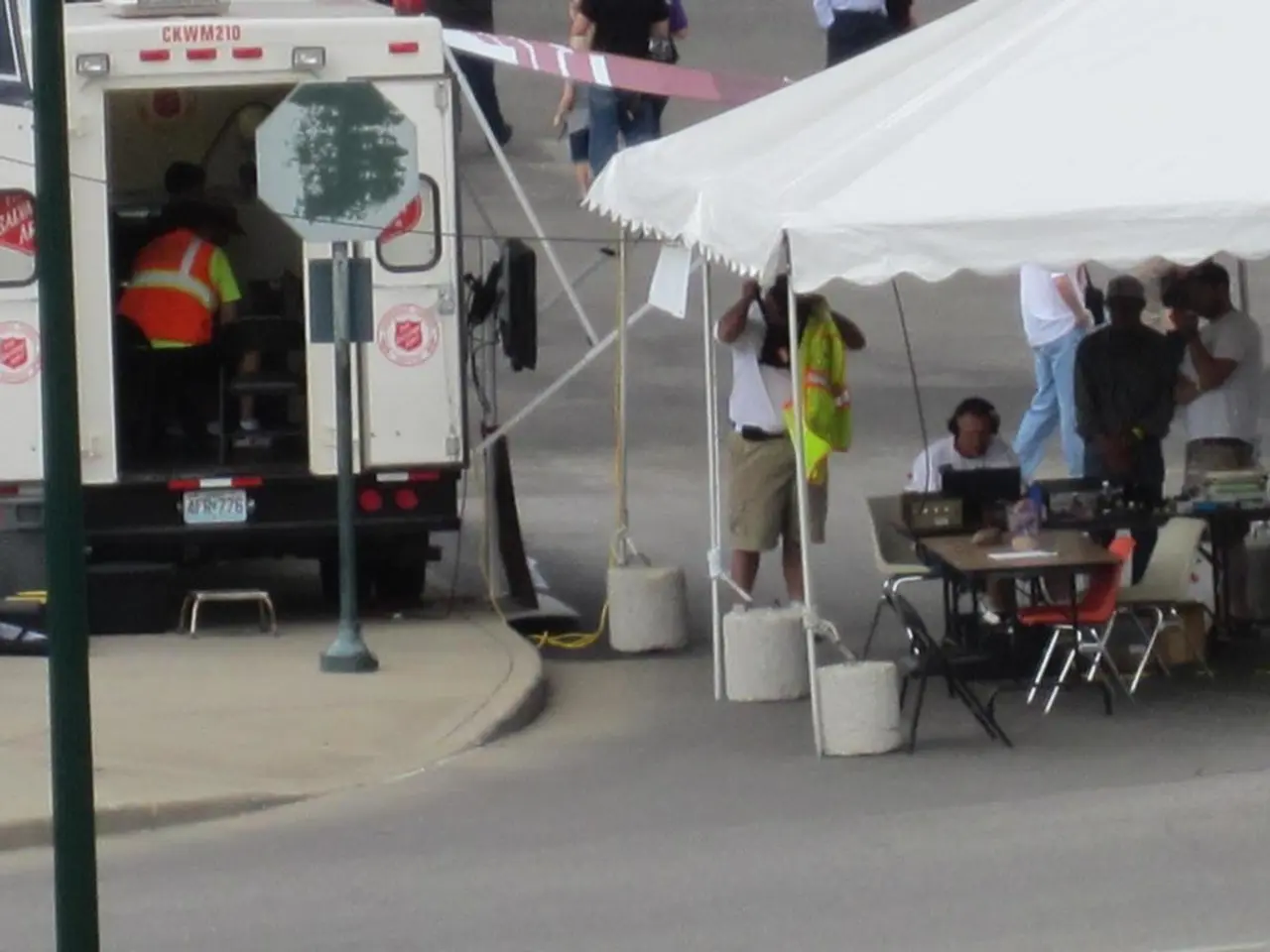Foreign officials, led by representatives from the EU, and 26 foreign ministers, endorse the right of NGOs to gain entry and operate in Gaza.
Crisis in Gaza: World Urges Israel to Allow Unrestricted Humanitarian Access
The urgent humanitarian situation in the Gaza Strip is reaching critical levels, as the European Union, United Nations, and numerous countries are demanding Israel allow unrestricted access for humanitarian aid and protections for civilians and aid workers.
The joint declaration, signed by the EU Foreign Affairs Representative Kaja Kallas, along with the Foreign Ministers of most EU countries, Australia, Canada, Iceland, Japan, Norway, Switzerland, and the UK, calls for the immediate and safe passage of all humanitarian aid—including medicine, food, water, and fuel—to reach Gaza.
The declaration also emphasizes the protection of civilians and aid workers at distribution points, as well as the utilization of all border crossings and routes to enable humanitarian aid to reach the region.
The call for action comes amidst ongoing conflict, with tens of thousands killed or injured and massive displacement in the Gaza Strip. Over 86% of Gaza remains in Israeli-militarized zones or under displacement orders, forcing civilians into unsafe shelters including damaged buildings and overcrowded sites.
The United Nations reports that no humanitarian aid, such as medicines and medical supplies, has been allowed into Gaza for over five months (since March 2025). This blockade has compounded the starvation and medical crises amid continuous attacks.
The UN human rights office (OHCHR) highlights systematic destruction of Gaza City, including attacks on civilian homes, schools, and displacement shelters, resulting in hundreds of deaths and families fleeing with nowhere safe.
UN experts strongly condemn the blocking of aid, labeling it a war crime when intended to starve civilians. They report nearly 1,400 killed and over 4,000 injured while seeking food at distribution sites overseen by the Gaza Humanitarian Foundation, describing the situation as an ongoing genocide and humanitarian catastrophe.
Israeli Prime Minister Benjamin Netanyahu has reiterated that there is no famine in the Gaza Strip. However, he has acknowledged that the only ones going hungry in Gaza are the hostages held by Hamas.
Representatives from 26 Western countries and the EU Commission are pressing Israel to allow aid deliveries into the Gaza Strip. They support ceasefire efforts led by the US, Qatar, and Egypt to end hostilities, release hostages, and allow unhindered land access for aid.
In summary, the EU Commission, UN agencies, and multiple governments are demanding Israel urgently permit full humanitarian access and safeguard civilians and aid workers amid intensifying conflict and a worsening humanitarian crisis in Gaza. They emphasize protection from attacks on civilian infrastructure and humanitarian sites to avoid further mass casualties and famine.
[1] UN OCHA, "Gaza Crisis: Humanitarian Bulletin," 2025. [2] UN OCHA, "Gaza Crisis: Protection Bulletin," 2025. [3] UN OHCHR, "Report on the Situation of Human Rights in the Palestinian Territory Occupied by Israel," 2025. [4] EU Commission, "Joint Statement on the Situation in Gaza," 12 August 2025. [5] UNICEF, "Gaza Crisis: Children in Urgent Need of Protection and Assistance," 2025.
- The ongoing crisis in Gaza, marked by war-and-conflicts, has resulted in a call for policy-and-legislation changes, as international bodies and governments demand Israel modify its stance to allow unrestricted migration of humanitarian aid, a key aspect of general-news and crime-and-justice discussions.
- Amidst mounting criticisms over Israel's refusal to allow humanitarian access, numerous UN reports highlight the systemic destruction of civilian infrastructure, including homes, schools, and shelters, during the war-and-conflicts, which has led to the deaths of hundreds and forced displacement, exacerbating the existing humanitarian catastrophe.
- The politics surrounding the Gaza crisis has intensified, with representatives from multiple nations and the EU Commission pushing for Israel to implement changes in its policy-and-legislation that ensure the safe migration of humanitarian aid, protect civilians and aid workers, and ease the ongoing humanitarian crisis, all while addressing crime-and-justice issues such as violations of human rights during war-and-conflicts.






